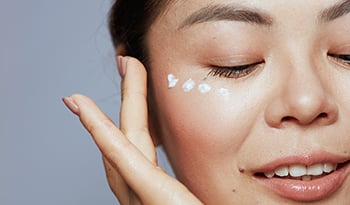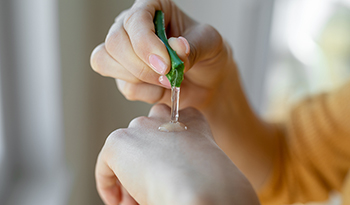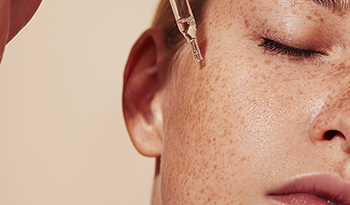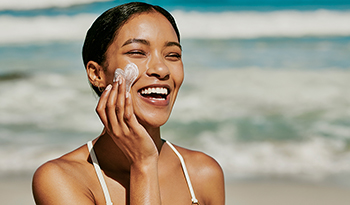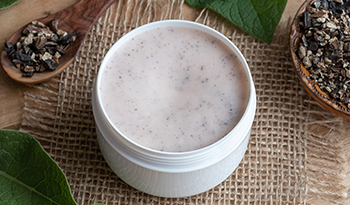8 Supplements to Protect Skin from the Summer Sun

Diversity is what makes the world beautiful! An enormous range of genetics, cultures, customs, languages, and regional landscapes create uniqueness among humans. One of the most visible of unique characteristics is attributed to the myriad of skin tones that exist on the planet, spanning from very dark to extremely pale and everything in between.
The color of one's skin can have an effect on overall health and appearance over time, from fine lines and wrinkles to the risk for sun damage and even cancer. Amongst Caucasians, skin cancer is the leading type of malignancy while those with increased skin pigmentation, which is based on melanin content, have a “natural barrier” against ultraviolet rays that helps to prevent excessive solar-related damage.
Sunscreen is frequently used to help prevent sunburns, and it is assumed by many, including dermatologists, that this will prevent skin cancer. Recent studies suggest otherwise. In 2018, the European Journal of Dermatology reported a meta-analysis, which looked at 29 studies that included over 313,000 people, concluding that regular sunscreen use does not protect against skin cancer. It is important to note that sunscreen does, however, protect against sunburns, which can be painful. Additionally, a diet rich in antioxidants is useful in prevention of cancer of all types, including those on the skin.
Dermatologists classify skin tone using the Fitzpatrick scale—skin tone ranges from Type 1 to VI. Here is a description:
- Type I - Always burns, never tans (pale white; blond or red hair; blue eyes; freckles)
- Type II - Usually burns, tans minimally (white; fair; blond or red hair; blue, green, or hazel eyes)
- Type III -Sometimes mild burn, tans uniformly (cream white; fair with any hair or eye color)
- Type IV - Burns minimally, always tans well (moderate brown)
- Type V - Very rarely burns, tans very easily (dark brown)
- Type VI - Never burns, never tans (deeply pigmented dark brown to darkest brown)
Evidence does suggest that increased time spent in the sun increases the risk for non-melanoma skin cancer. Those with sun damage may undergo solar skin changes, some of which are called actinic keratosis, a precancerous condition that may develop into basal cell and squamous cell skin cancers. It is theorized that those who use sunscreen may actually spend more time in the sun than those who do not due to a false sense of “protection”. This may explain why sunscreen use may not protect against skin cancer.
A diet high in antioxidants and carotenoids could help
In 2017, my wife and I took a trip to Cozumel, Mexico. I conducted a research study on myself: I chose not to wear sunscreen on my olive complex (Fitzpatrick 4) for the week that I was there. I consumed a breakfast purely of watermelon, cantaloupes, kiwis, strawberries, bananas, mango, yogurt and green juices. I also consumed fresh fish at least 3 times that week. To my surprise, despite not wearing sunscreen and spending a lot of time snorkeling, scuba diving, and swimming in a pool, I did not get a sunburn, although I did tan. This was unlike other trips where I would normally undergo a mild sunburn. Perhaps this was caused by the food I consumed and my skin complexion. Those with lighter skin tones may not fair as well.
Foods that help protect the skin:
- Berries (high antioxidant levels)
- Cantaloupe (high in vitamin C)
- Carrots (rich in carotenoids)
- Green juices (high antioxidant levels)
- Kale (rich in carotenoids)
- Kiwi (high in vitamin C)
- Mangos (high in vitamin C)
- Oranges (high in vitamin C)
- Peppers (rich in carotenoids)
- Pumpkins (rich in carotenoids)
- Spinach (rich in carotenoids)
- Tomatoes (rich in carotenoids)
- Watermelon (high antioxidant level)
There are also supplements taken by many that have been proven by studies to have beneficial effects on skin health.
Astaxanthin
Astaxanthin is a red-orange colored carotenoid found mainly in seafood such as salmon, shrimp, krill, crustaceans, yeast, and certain algae. It is what gives salmon, crab, and lobster its red color. A 2011 study discussed astaxanthin’s skin protecting benefits while a 2013 study also demonstrated this antioxidants ability to help prevent skin cancer when taken regularly. Suggested dose: As directed on the label.
L-Carnitine
L-carnitine is an amino acid that helps the body transport fatty acids into mitochondria, the powerhouse of cells. L-carnitine is frequently taken by those with heart disease and those with fibromyalgia to help improve muscle health. Studies show it also protects the skin against UV-A solar damage according to animal studies.
Collagen
Studies show that collagen supplementation has numerous benefits for the skin, and oral collagen supplementation could be helpful in minimizing the look of cellulite and wrinkles. It may also improve the growth of hair and nails. It is estimated that during our mid-30s, we start to lose about one percent of our body’s collagen yearly.
A 2016 study in the Journal of Science of Food and Agriculture concluded that the use of oral collagen “led to more improvement in facial skin conditions, including facial skin moisture, elasticity, wrinkles and roughness”.
Can collagen prevent the aging of the skin? A 2008 study concluded that “…collagen peptide is beneficial as a dietary supplement to suppress UV-B-induced skin damage and photo-aging”. A 2015 study in the Journal of Cosmetic Dermatology reported similar results with oral collagen supplementation. The researchers concluded that collagen supplements reduced skin aging. In other words, adding collagen to your supplements may help you keep a more youthful appearance. Suggested dose: As recommended on the label.
Omega-3 Fish Oil
Omega-3 fish oils are believed to not only have heart benefits but, according to studies, may also have anti-skin cancer effects. Omega-3 essential fatty acids consist primarily of particularly eicosapentaenoic acid (EPA) and docosahexaenoic acid (DHA). A 2014 Nutrition Journal study showed that most Americans do not consume enough omega-3 essential oils. Others in Europe, Russia, and Asia are also at risk, especially if omega-3-rich foods are rarely eaten. These food sources include fish (mackerel, cod, and salmon are among the richest), walnuts, chia seeds, flax seeds, hemp seeds, and natto.
A 2016 study in the Journal of Clinical Medicine concluded that there was considerable evidence that supplementation with omega-3 fatty acids could help reduce basal cell and squamous cell skin cancers (there was no effect on melanoma skin cancer). A 2006 study showed similar benefits. Suggested dose: 1,000 mg up to twice per day.
Pine Bark Extract Protects Skin
Pine bark extract or Pycnogenol helps protect skin while helping the body rebuild tissue. Its strong antioxidant power can help protect against ultraviolet sunlight damage when taken orally and when applied topically to the face. Antioxidant properties help protect the collagen and elastic tissue from oxidative damage, the primary cause of skin aging. Suggested dose: Oral supplements, as suggested on the label. Topical Pycnogenol is applied directly to the skin as directed on the label.
Vitamin B3 (Nicotinamide)
Nicotinamide plays a significant role in repairing skin damage. A 2017 study showed that regular intake of vitamin B3 reduced risk for developing actinic keratosis, a precursor to skin cancer. A 2010 study also supported the benefit of vitamin B3 in skin protection.
Suggested dose: As directed on the label. (note: some may experience skin flushing)
Vitamin C
Vitamin C, ascorbic acid, is one of the most researched vitamins. Vitamin C is water-soluble, meaning that any excess vitamin in the body will be excreted out in the urine. Vitamin C is a potent antioxidant found in many fresh fruits and vegetables, including the following:
- Guava
- Papaya
- Peppers
- Kiwi
- Orange
- Strawberries
- Pineapple
- Broccoli
- Cabbage
Consuming a diet rich in vitamin C is a good way to optimize this important antioxidant. Oral vitamin C also has many skin benefits. A 2018 study where vitamin C was taken orally along with collagen protein showed significant improvement in skin health after only 12 weeks. In addition, application of topical vitamin C direct to the face and other parts of the body is helpful in protecting the skin against solar damage according to studies. Suggested oral dose: 1,000 mg twice per day. Topical vitamin C, as directed on the label.
Vitamin E
A 1996 study showed the vitamin C, when taken in combination with 1,000 IU of vitamin E could help prevent sunburns. Topical vitamin E is also used by many to help keep the skin healthy.
Aspirin
Aspirin, technically a medicine, is derived from plants. This over-the-counter medication is frequently taken at doses of 81 to 162 mg per day by at-risk people to help prevent heart attacks and strokes. Aspirin is one of the oldest medications. It has been used for over 2,000 years, since it was extracted from willow tree bark. A 2015 meta-analysis study (which looked at data from nine other studies) in The Journal of Investigative Dermatology showed that regular aspirin users when compared to non-aspirin users, were 18 percent less likely to develop squamous cell skin cancer. A 2016 study also showed aspirin may help prevent basal cell cancer. Ask your doctor if a daily aspirin is right for you, as some daily users may also be at risk for developing a stomach ulcer. Those over age 50 tend to benefit more than those under 50.
References:
- European Journal of Dermatology. 2018 Apr 1;28(2):186-201. doi: 10.1684/ejd.2018.3251.
- Accessed May 27, 2018 https://www.healthline.com/health/beauty-skin-care/fitzpatrick-skin-types#skin-types
- Yuan J.P., Peng J., Yin K., Wang J.H. Potential health-promoting effects of astaxanthin: A high-value carotenoid mostly from microalgae. Mol. Nutr. Food Res. 2011;55:150–165. doi: 10.1002/mnfr.201000414.
- Rao A.R., Sindhuja H.N., Dharmesh S.M., Sankar K.U., Sarada R., Ravishankar G.A. Effective inhibition of skin cancer, tyrosinase, and antioxidative properties by astaxanthin and astaxanthin esters from the green alga Haematococcus pluvialis. J. Agric. Food Chem. 2013;61:3842–3851. doi: 10.1021/jf304609j
- Chem Biol Interact. 2018 Apr 1;285:40-47. doi: 10.1016/j.cbi.2018.02.034. Epub 2018 Feb 27.
- Schunck M, Zague V, Oesser S, Proksch E. Dietary Supplementation with Specific Collagen Peptides Has a Body Mass Index-Dependent Beneficial Effect on Cellulite Morphology. Journal of Medicinal Food. 2015;18(12):1340-1348. doi:10.1089/jmf.2015.0022.
- Borumand M, Sibilla S. Daily consumption of the collagen supplement Pure Gold Collagen® reduces visible signs of aging. Clinical Interventions in Aging. 2014;9:1747-1758. doi:10.2147/CIA.S65939.
- Skin Pharmacol Physiol. 2014;27(1):47-55. doi: 10.1159/000351376. Epub 2013 Aug 14.
- Schwartz SR, Park J. Ingestion of BioCell Collagen®, a novel hydrolyzed chicken sternal cartilage extract; enhanced blood microcirculation and reduced facial aging signs. Clinical Interventions in Aging. 2012;7:267-273. doi:10.2147/CIA.S32836.
- Inoue, N., Sugihara, F. and Wang, X. (2016), Ingestion of bioactive collagen hydrolysates enhance facial skin moisture and elasticity and reduce facial ageing signs in a randomised double-blind placebo-controlled clinical study. J. Sci. Food Agric., 96: 4077–4081. doi:10.1002/jsfa.7606
- Midori TANAKA, Yoh-ichi KOYAMA & Yoshihiro NOMURA (2009) Effects of Collagen Peptide Ingestion on UV-B-Induced Skin Damage, Bioscience, Biotechnology, and Biochemistry, 73:4, 930-932, DOI: 10.1271/bbb.80649
- Asserin, J., Lati, E., Shioya, T. and Prawitt, J. (2015), The effect of oral collagen peptide supplementation on skin moisture and the dermal collagen network: evidence from an ex vivo model and randomized, placebo-controlled clinical trials. J Cosmet Dermatol, 14: 291–301. doi:10.1111/jocd.12174
- Papanikolaou Y, Brooks J, Reider C, Fulgoni VL. U.S. adults are not meeting recommended levels for fish and omega-3 fatty acid intake: results of an analysis using observational data from NHANES 2003–
- 2008. Nutrition Journal. 2014;13:31. doi:10.1186/1475-2891-13-31.
- Black HS, Rhodes LE. Potential Benefits of Omega-3 Fatty Acids in Non-Melanoma Skin Cancer. Brown L, Rauch B, Poudyal H, eds. Journal of Clinical Medicine. 2016;5(2):23. doi:10.3390/jcm5020023.
- Cancer Detect Prev. 2006;30(3):224-32. Epub 2006 Jul 26.
- Hautarzt. 2017 May;68(5):354-358. doi: 10.1007/s00105-017-3980-x.
- Photochem Photobiol Sci. 2010 Apr;9(4):578-85. doi: 10.1039/b9pp00146h.
- Clin Cosmet Investig Dermatol. 2018 Apr 30;11:195-201. doi: 10.2147/CCID.S150269. eCollection 2018.
- Al-Niaimi F, Chiang NYZ. Topical Vitamin C and the Skin: Mechanisms of Action and Clinical Applications. The Journal of Clinical and Aesthetic Dermatology. 2017;10(7):14-17.
- J Am Acad Dermatol. 1998 Jan;38(1):45-8.
- Journal of Investigative Dermatology. 2015 Apr;135(4):975-983. doi: 10.1038/jid.2014.531. Epub 2014 Dec 18.
- J Am Acad Dermatol. 2016 Jan;74(1):108-119.e1. doi: 10.1016/j.jaad.2015.08.034. Epub 2015 Oct 1.
DISCLAIMER:This Wellness Hub does not intend to provide diagnosis...
















































































 Table of Contents
Table of Contents





